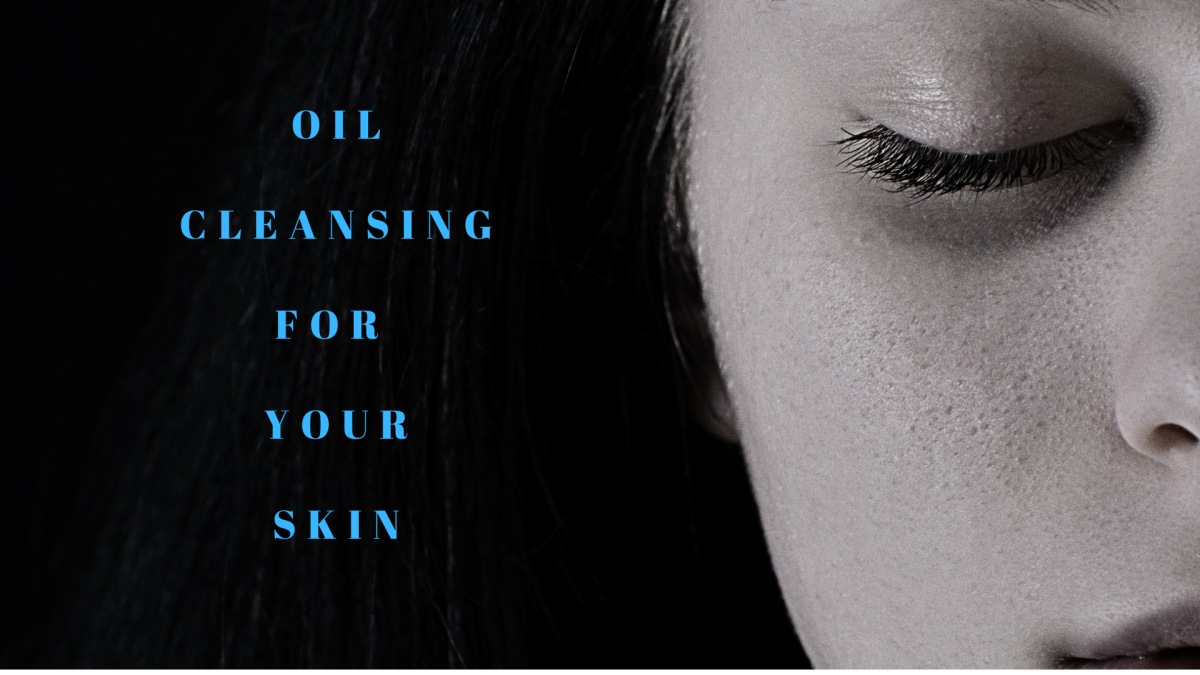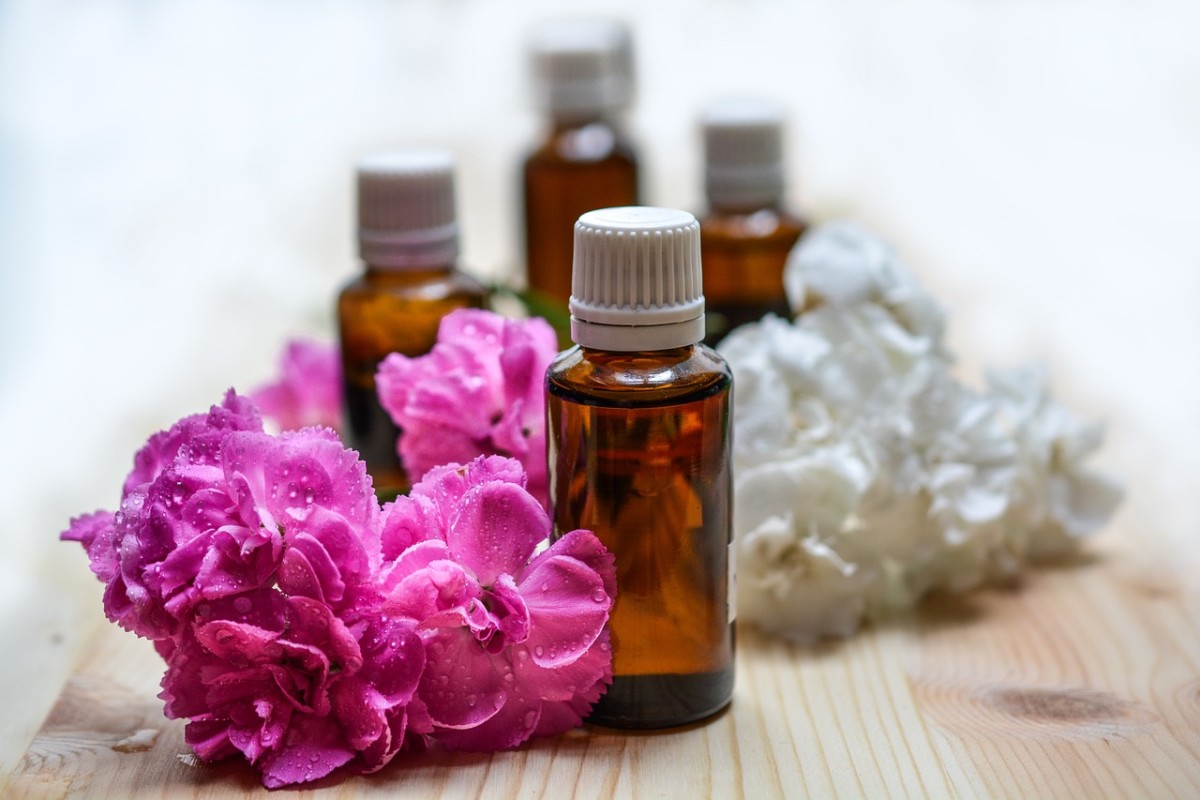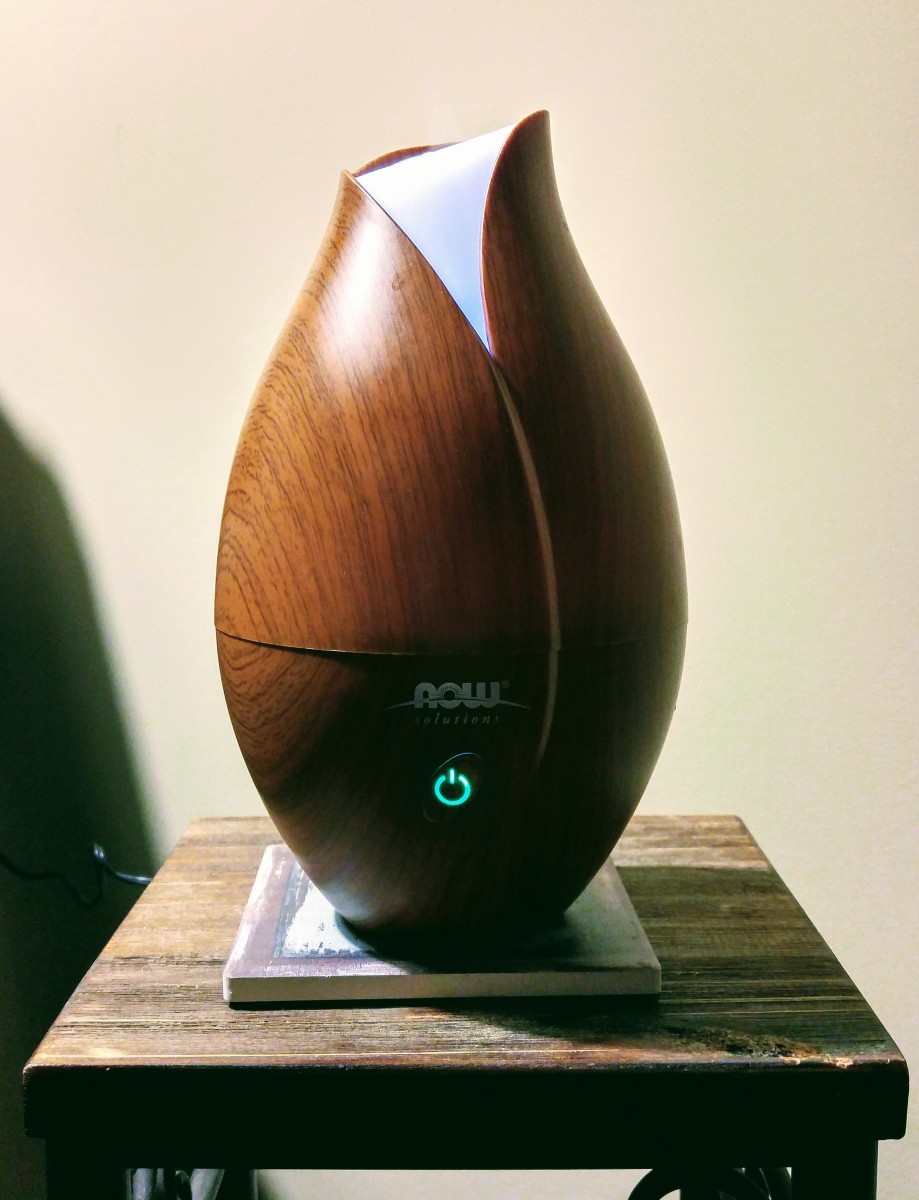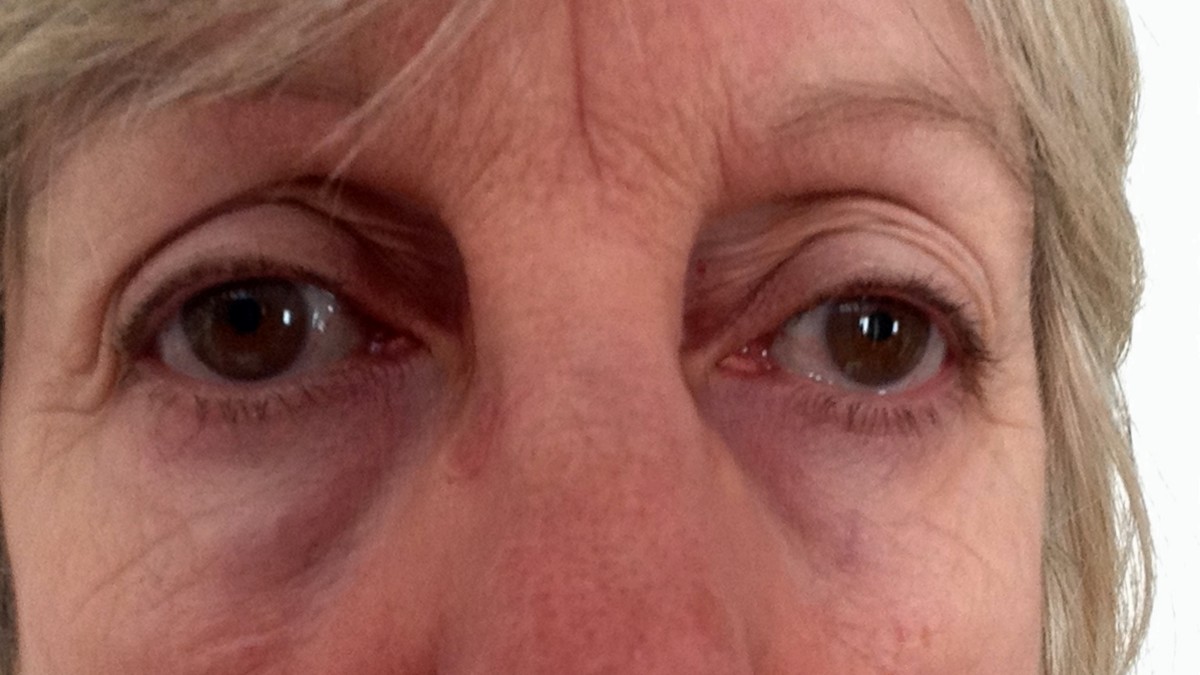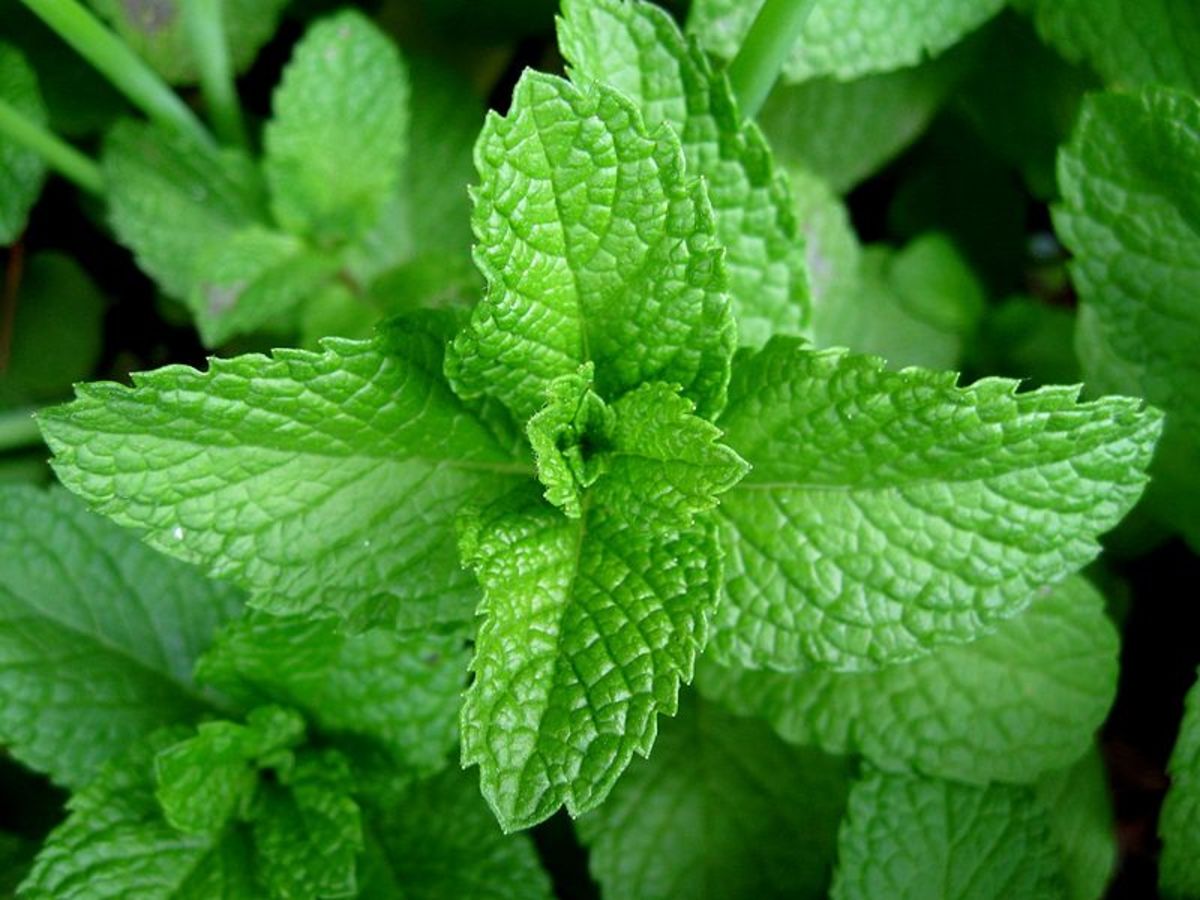Nourishing Oils for Your Skin Type
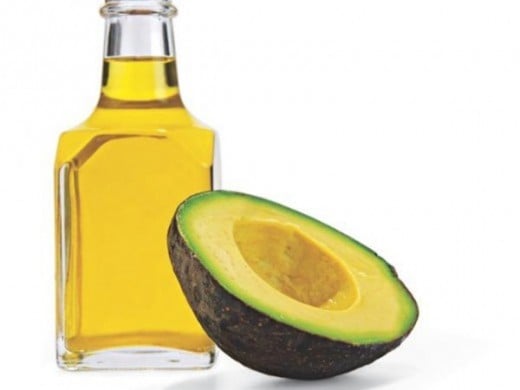
Plant Oils & Your Face
Until my daughter took classes to become a licensed esthetician, I never knew skin care included the use of plant oils. You can use oils on all skin types whether it is dry, oily, sensitive, or combination skin (oily t-zone, dry on the cheeks).
Back in the Day
When I was growing up I did not have an acne problem, but my brothers did.Back then (1960's) it was unheard of for anyone with oily skin to apply oil on his/her face. Everyone just assumed that using oil on an oily face would make you break out in pimples.
Oils Used Historically
When you think back to Bible days, oils were used often for various reasons-- especially Olive oil, Frankincense, and Myrrh. It is strange that we knew about using oils from before time began (practically), but somewhere along the line we forgot and developed a taboo against using oils on an oily face.
Use of Oils for the Face Not Widely Known
I could not help but notice how basic using oils for the face is in the skincare industry, while in the regular world oils are not even mentioned; instead you see commercials advertising creams or lotions, but never oils. It is like a beauty-secret or something, but people need to know about using oils because they can improve all types of skin-- even oily skin.
Olive Oil & Cleansing
As I searched online I saw many articles about using olive oil to cleanse your face -- and some use other oils for facial cleansing. I never tried using oils for cleansing my face before but I will include a video about how that is done in this article (hub).
Illustration of the Layers of Our Skin
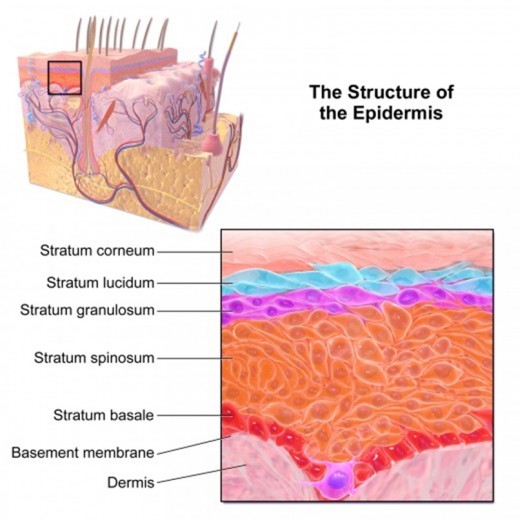
Determining Your Skin Type
Oils & Your Skin
All oils, whether they are plant-based or synthetic are useful and can be applied anywhere there is skin. No particular oil is superior to another but some oils are better for some skin types than others. For example, Rose Hip Seed Oil is especially good for aging and sensitive skin types; however, there are also other oils that are good for these skin types.
Oils can be used all over your body—if it is good for your body it is good for your face. First, you must determine your skin type.
What is Your Skin Type?
There are 6 skin types: Normal, Dry, Oily, Sensitive, Dehydrated, and Combination skin. Many charts do not mention dehydrated skin, and sometimes “normal” skin is also neglected, but most charts include the other four skin types.
Use the following information to determine your skin type:
- Normal: People with normal skin have skin that feels moist and hydrated. They do not have flaky or dry skin, and are not oily on their face. Their skin is soft and is easily maintained because the correct amount of oil flows effortlessly to hydrate the Stratum corneum (top layer of the skin). Normal skin is desirable and ages nicely.
- Dry: People with dry skin do not have enough oil in the top layer of the skin. If you have dry skin your face feels tight after washing it, so you need to moisturize your face right away.
- Oily: Oily skin looks shiny and feels oily.People with oily skin have open pores that attract acne and blackheads. Oily skin is thick and ages better than other types, except normal skin.
- Sensitive: Sensitive skin may look delicate and dry, and have breakouts and blemishes, too. Cosmetics, facial cleansers, and so forth may cause irritation and redness. Sensitive skin causes itchiness and redness on the face.
- Dehydrated: Dehydrated skin is caused by insufficient water in the top layer. Dehydrated skin and dry skin both share the same symptoms: itchy, sensitive, irritated, tight feeling, a rough or scaly appearance, flaking, redness, fine lines, and cracks that may or may not bleed.
- Combination: Combination skin affects the face in two ways: 1) Oily skin will affect the face in the T-zone (such as the forehead, nose, and chin; 2) Other areas of the face, such as your cheeks, are affected by dryness due to a lack of oil in the top layer.
Sources:
1. http://www.paulaschoice.com/expert-advice/beauty-buzz/_/face-oils-for-healthier-skin1
2. https://primpbeautyknowledge.files.wordpress.com/2013/01/skin-types.jpg
3. http://www.laviol.com.au/blog/view/1406/choose_the_right_carrier_oils_for_your_skin_type
Skin Type Chart
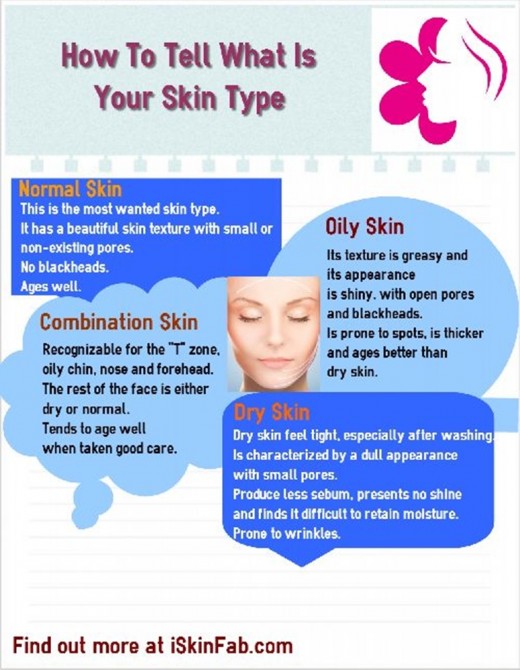
Oils Heal Your Skin
What Oils Offer Your Skin
Plant-based oils supply antioxidants, essential fatty acids (EFAs), nutrients, and vitamins to your skin. Oils also protect your skin from inflammation and other damage caused primarily by the sun’s harmful rays, cold weather, aging, smoking, and other environmental factors.
Protection, Hydration & More
Oils not only protect our skin, but also keep it soft and healthy-looking. Plant oils help keep the skin hydrated and balanced, as well as contribute to the regeneration of skin cells and collagen.
As we age our skin's ability to regenerate new cells slows down and so does collagen production; this causes our skin to wrinkle and sag. However, using the correct oils on your face encourages collagen production and plumps the skin, improving and minimizing the appearance of wrinkles and sagging skin. Further, because oils are all-natural they do not cause allergies and are well accepted by your skin. Oils satisfy the skin’s need for oil and prevent inflammation, producing soft, pliable skin that ages gracefully.
Use First Cold-Pressed Oils
Remember when you purchase Olive oilsto use on your face, buy oils that are derived from the first cold press, as these are not processed using high temperatures that can destroy the beneficial composition of the oils.
First cold pressed olive oils are of the best quality and maintain the integrity of their vitamins, essential fatty acids, antioxidants, and other nutrients. Make sure the oils you buy have the words “first cold-pressed” written on the label, as this is the only way to ensure they are not processed.
For other types of oils be sure to use oils that read "100% Pure" and specify that they are for use on the skin or face.
Defining Oxidation, Antioxidants, and Free Radicals
You need to know what oxidation, antioxidants, and free radicals are in order to understand what oils do for your skin. I will try to explain these words without getting into complicated chemistry terms.
Oxidation: The introduction of oxygen into our body's cells. Oxygen causes a chemical reaction within our bodies that produces oxide, causing the deterioration of normal healthy cells. Comparable to the the way oxygen produces rust on steel, thus, weakening the strength and quality of the metal, so oxidation works in a similar manner to cause cell degeneration.
Antioxidants: Are substances such as vitamins A, C, and E that are beneficial to the cells of living organisms. In the case of our skin, antioxidants work to reverse cell damage caused by oxidation (from contaminants, external factors, smoking, aging, and so forth). These factors and more cause free radicals to enter our system. Antioxidants essentially restore the health of cells that have become impaired by free radicals. However, antioxidants are also used to keep skin care products fresh, free from deterioration so that their quality remains intact.
Free Radicals: Enter the body after oxygen is introduced. These cells are incomplete and look for healthy cells to improve their condition by taking one of their electrons (since they are not evenly paired). However, because free radicals take the needed electron from a healthy cell, the healthy cell becomes damaged and alters DNA, promoting serious diseases that threaten our health and lives.
Antioxidants Fight Free Radicals
I hope this helps you realize why antioxidants are so important. Antioxidants repair the damage free radicals produce, reversing their ability to cause inflammation-causing diseases.
Sources:
Cracked, Dry Skin
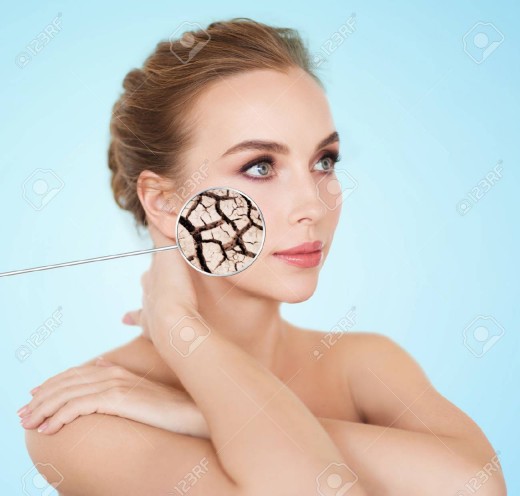
How Antioxidants Heal Your Skin
Healthy Cells, Free Radicals, Antioxidants
The healthy cells within us are balanced, containing one electron and one protron. However, as a result of smoking, ingesting fried foods, pollution, radiation exposure, and so forth, free radicals are produced.
Free radicals are by-products of normal metabolism, and they wreak havoc in the body. They contain an uneven number of electrons so they find healthy cells and steal what they lack—leaving the once healthy cell damaged, impaired.
Enter antioxidants. Antioxidants enter the body carrying an extra electron which they use to restore damaged cells to their original healthy state. In this way, antioxidants reverse the oxidation that free radicals cause -- such as damage to our cells and DNA that lead to inflammation and diseases such as cancer, heart disease, age-related degeneration, and other serious illnesses generally known as oxidative stress.
Some Known Antioxidants in Oils
The following is a list of some antioxidants:
- Beta-carotene
- Co-enzyme Q-10
- Lutein
- Lycopene
- Resveratrol
- Selenium
- Vitamins A, C, and E
Oils contain many of these antioxidants, but they are also in high quantity in many of the fruits, vegetables, grains, nuts , seeds, coffee, cocoa, and teas.
Of course, you can also purchase antioxidants in supplement form.
Source: http://nutrition.about.com/od/nutritionglossary/g/free-radicals.htm
Pure Grapeseed Oil, First Cold-Pressed Virgin Olive Oil, and Other Plant-based Oils
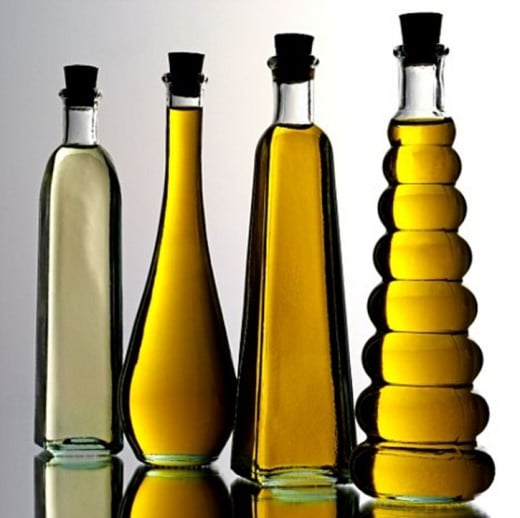
Storing Your Beauty Oils
Storage and Shelf Life
Base oils last much longer if they are kept in a cool place. Refrigerating oils increases its shelf life.
Oils may also be frozen, so you can leave some in a little dark jar (best if kept out of the light) and freeze or refrigerate the rest until needed.
Most oils have a 1 year shelf life, but some oils may have a 2 year shelf life.
Nighttime Ritual for Curing Dry or Oily Face
5 Oils for Your Skin Type
Extra Virgin Olive Oil: Remedy for Acneic Skin
Best Beauty Oils
Selecting the Best Oils for Your Skin Type
Normal Skin
| Dry/Mature Skin
| Oily Skin
| Sensitive Skin
| Dehydrated Skin
| Combination Skin
|
|---|---|---|---|---|---|
Jojoba Oil
| Argan Oil
| Grapeseed Oil
| Avocado Oil
| Jojoba Oil
| Grapeseed Oil
|
Almond Oil
| Rosehip Seed Oil
| Jojoba Oil
| Grapeseed Oil
| Olive Oil
| Jojoba Oil
|
Apricot Kernel Oil
| Jojoba Oil
| Tea Tree Oil
| Apricot Kernel Oil
| Rosehip Seed Oil
| Sunflower Seed Oil
|
Sunflower Seed Oil
| Olive Oil
| Citrus Oils
| Jojoba Oil
| Grapeseed Oil
| Apricot Kernel Oil
|
There are many other oils you can use, but I selected the most commonly used oils for this table.
Sources:
Do Not Use These Oils on Your Face!
Plant Oils Vs. Essential Oils
Plant-seed derived oils are very good for your face and using them as part of your beauty regimen can correct any skin problems you may be currently facing (experiencing); however, do not confuse unscented plant oils with aromatic essential oils which are not the same and have different uses.
Essential oils are sold in very small bottles, are highly fragrant, and are not intended for use on the face unless diluted with plant oils—this is why plant oils are also referred to as “carrier oils”. Essential oils are widely used for aromatherapy and therapeutic massages, but never used full-strength on the face.
Disclaimer
If you think you want to try using essential oils you will need to get advice from an expert, such as an esthetician (licensed skin care expert) or other expert on this subject. The research done for this article only focuses on using plant oils (also called carrier oils) on your face to correct or improve skin conditions related to the face, such as dry skin, acneic skin, aging skin, dehydrated, oily, or combination skin types.
The use of essential oils is out of the scope of this article, so please avoid using essential oils unless you do your research or can find out more information on their use for your particular skin type. Please note that some essential oils can actually damage your skin, and all essential oils must be diluted before using.
Source: http://www.paulaschoice.com/expert-advice/beauty-buzz/_/face-oils-for-healthier-skin1
Please Take This Quiz About Base Oils
Have you used base oils to correct a skin condition?
Please Rate This Article
Helpful Links about Skin Care & Oils
- 9 Best Oils for a Perfect Complexion
Find out which face oil is best for your skin type. We talked to experts who recommended the top seven oils for every concern. - http://www.gardenofwisdom.com/carrieroils.html
- Understanding Free Radicals and Antioxidants
Understanding free radicals and antioxidants. Describes what free radicals are and how a diet rich in antioxidants can combat them and prevent disease.
© 2015 Miriam Parker

